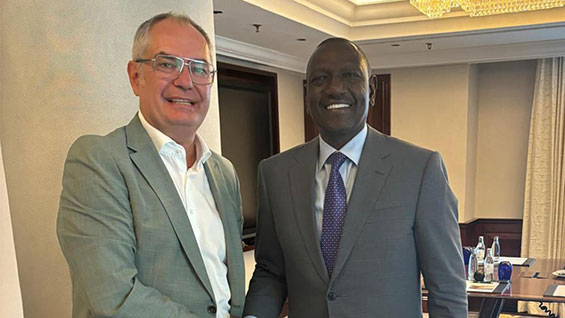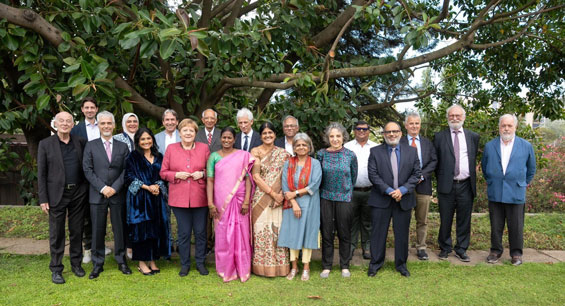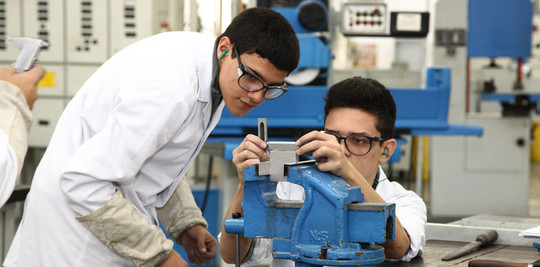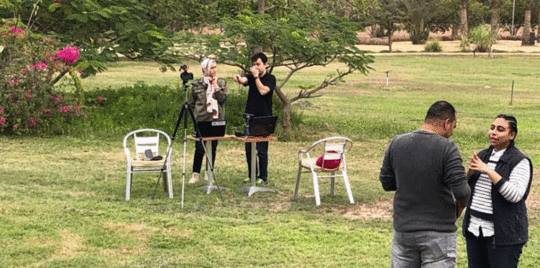Published
VET4Africa: Support for energy schools in Africa
VET4Africa: Support for energy schools in Africa
Due to the fact that trips to Africa are almost impossible at the moment, the African master trainers had to organize and execute the trainings at the energy schools themselves. The huge amount of basic knowledge that has been given to them at Wildpoldsried before the COVID-19-pandemic, were refreshed and intensified on behalf of online courses. Additionally, the supporters of the project VET4Africa have been giving help online during the training in Africa.
A digital learning and educational concept have been designed. Thanks to this, further apprenticeships can be offered in Africa. New documents have been produced during plenty of online meetings. Furthermore, video tutorials have been recorded and with the help of “moodle” a learning platform has been developed, where the participants can find the huge amount of educational materials.
In addition to this, the homepage VET4Africa and a YouTube-Channel have been launched.In order to keep the high-quality standards of the apprenticeship, new structures had to be built up. This is why only the best of the almost one hundred participants of the past five educations in Wildpoldsried have been picked and upskilled for the upcoming trainings in online weekend courses. During the five trainings in Uganda, Kenia and Ghana, 59 qualified lecturers and professional school teachers of different institutions have been educated. Next to getting to know theoretical skills, the participants of each class have been developing a solar training system and assembled it. In addition to the mediation of theoretical and practical knowledge, the application of state-of-the-art didactics and methodics like the learning of activity-oriented education is important for VET4Africa.
Marlyse Annoepel, project manager of bbw, was visiting Uganda despite of the COVID-19-pandemic in April 2021 in order to document and get an idea of the success on-site. “Each country, each school or university has special requirement. We respond to these requirements in the best way but not all of these requirements make sense. Our African master trainers are highly motivated and very committed. They show outstanding input in passing their knowledge about generating energy with the help of photovoltaics. They are convinced of the fact that it is ecologically and economically meaningful and that Africa’s future also means the world’s future. The support through VET4Africa is highly appreciated, much needed and exceedingly effective."
Until July 2021, five more trainings will be arranged in Uganda, Sambia and Kenia.Beyond these trainings, the next steps for the apprenticeship have already been prepared. Theoretical and practical documents as well as technology for the course named PV2 have been developed and the teachers are being trained. Within PV2, the installation of a power supply of a house or a village is being trained. This course is based on the contents of the course PV1 and expands the participants’ skills from conception and planning to testing and maintaining photovoltaic constructions in regard of the local conditions. The course aims at providing buildings or smaller settlements with electrical energy self-sufficiently.








